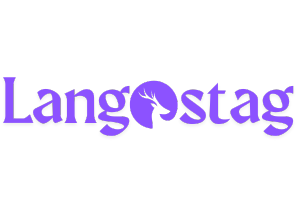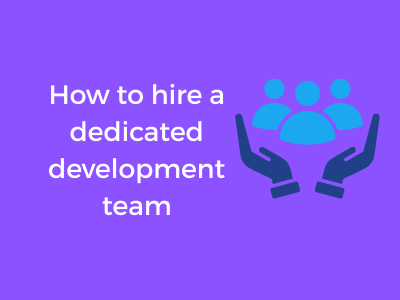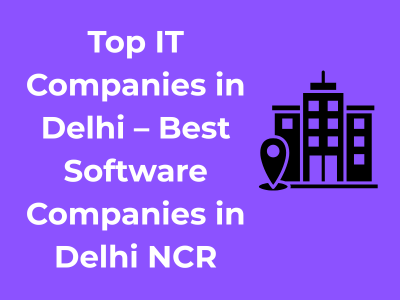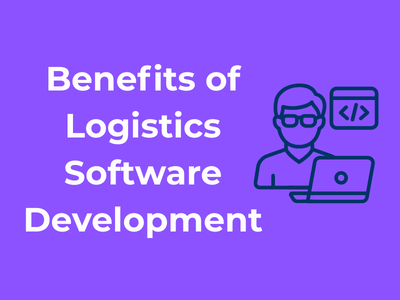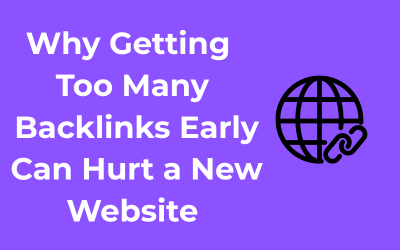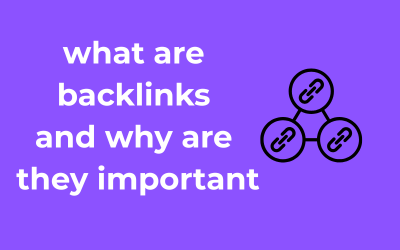Welcome to the world of dedicated development teams — an environment where collaboration, expertise, and problem-solving thrive. Let’s break down what this model is all about and why it’s such a game-changer for businesses worldwide.
Imagine a Team Working Exclusively for You
In simple terms, a dedicated development team model involves assembling a group of skilled professionals who work exclusively on your project, just like an extension of your in-house team. These team members are not juggling multiple projects for various clients — they’re entirely focused on your goals, ensuring that your business objectives are treated with utmost priority.
Who’s in the Team?
A dedicated development team typically consists of:
- Developers: Depending on your project’s needs, this can range from front-end, back-end, or full-stack developers.
- Project Managers: A single point of contact to streamline communication, track progress, and eliminate bottlenecks.
- QA Engineers: Ensuring quality and reliability, so your product meets high standards.
- UX/UI Designers: Bringing your vision to life with user-friendly and aesthetically pleasing designs.
- Other Specialists: This can include DevOps engineers, data analysts, or even AI/ML experts depending on the project requirements.
The beauty of this model is its flexibility – your dedicated team is built with the exact skill sets your project demands.
Flexible Yet Focused
One major perk of hiring a dedicated development team is its adaptability. Let’s say your project starts as a mobile app but transforms into a full-fledged software ecosystem. With a dedicated team, you can scale up (or down) the team size and tweak skills as your project evolves. Sounds useful, right?
But remember, focus is the distinguishing factor here. Because the team is dedicated solely to your project, they’re deeply invested in understanding your business needs and challenges. Their time, expertise, and creative energy are committed to helping you achieve success.
Why Does This Model Work So Well?
It’s all about partnership. A dedicated team doesn’t merely provide a service — they immerse themselves in your company’s goals, culture, and mission. You get the best of both worlds: the capabilities of a specialized external team and the collaboration of an in-house crew.
This approach ensures:
- Consistency: You’ll work with the same team members, enabling them to deeply understand your project’s nuances.
- Accountability: With a designated team by your side, you eliminate the ambiguity or miscommunication that can occur in a fixed project model.
- Efficiency: Since the team is laser-focused on your project, deadlines are met quicker without compromising on quality.
Why Businesses Prefer a Dedicated Development Team Over Traditional Models
Let’s get real: the world of tech is constantly evolving, and businesses are always looking for innovative ways to optimize their processes. When it comes to development, choosing the right team structure is a pivotal decision. The traditional models of hiring in-house developers or outsourcing to a third-party team have their own merits, but more and more businesses are gravitating toward the dedicated development team model. Why, you ask? Let’s dive into it!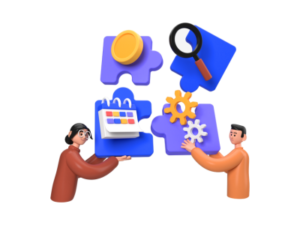
1. Full Focus On Your Project
Unlike traditional outsourcing methods where your project might compete for attention with others, a dedicated team works exclusively on your tasks. Picture this: a group of skilled professionals entirely immersed in your goals, processes, and product vision. Sounds fantastic, doesn’t it? This single-minded focus often translates into higher-quality results and faster turnaround times.
2. Cost-Effective Without Compromising Quality
Hiring an in-house team means covering recruitment costs, onboarding, salaries, benefits, office space – the list goes on. On the other hand, outsourcing to a traditional team might result in unpredictable expenses, especially if the scope of your project changes. A dedicated development team combines the best of both worlds. It’s not only affordable but also highly flexible, enabling you to adjust resources as your business evolves.
3. Seamless Integration Into Your Workflow
One huge advantage of a dedicated development model is the ability to integrate smoothly into your existing workflow and company culture. These teams function like an extension of your company rather than a separate entity altogether. With modern tools for collaboration (think Slack, Trello, or Jira), it’s easier than ever to ensure everyone is on the same page, no matter where they are in the world.
4. Tailored Skill Sets For Your Specific Needs
Every business is unique, and so are its projects. With a dedicated development team, you can handpick experts who bring the exact skill set you’re looking for. Need a full-stack developer, a UI/UX designer, and a QA specialist all rolled into one seamless crew? You got it! This customization ensures that you’re not paying for resources you don’t need while delivering the expertise your project demands.
5. Long-Term Flexibility and Scalability
One of the standout reasons companies opt for dedicated development teams is the freedom to scale up or down as needed. When your project grows, your team can expand right alongside it. If things slow down, you can resize the team without the headache of layoffs or massive transitions. Talk about business-friendly adaptability!
6. Enhanced Communication and Transparency
Building trust is key, and that’s why businesses love the open lines of communication that come with this model. Regular updates, progress reports, and easy access to team members foster a transparent relationship. You’re always in the loop, which is a far cry from some traditional outsourcing models where updates are sparse, leaving you in the dark.
Why It Matters for Your Business
Ultimately, investing in a dedicated development team aligns with what every business wants: efficiency, innovation, and results-driven collaboration. Think of it as a partnership rather than a transactional agreement. You’re not just building a product – you’re building relationships, expertise, and a tailored solution for your company’s unique needs.
Key Industries Benefiting From Dedicated Development Teams
So, you’re probably wondering – which industries are actually reaping the rewards of hiring dedicated development teams? Let me tell you, the answer is pretty fascinating. With the flexibility, expertise, and cost-efficiency they bring, these teams are transforming a variety of fields. Let’s dive into the industries where they’re making the biggest impact.
1. Tech and Software Development
No surprises here! The tech industry has always been quick to embrace innovation, and dedicated development teams are no exception. Whether it’s building SaaS platforms, mobile apps, or enhancing AI and machine learning capabilities, software companies love having a focused, skilled team at their disposal. It helps them roll out updates, new products, and bug fixes rapidly, staying ahead in this ultra-competitive market.
2. E-commerce
Online shopping has exploded in recent years, and businesses are striving to provide a seamless digital shopping experience. E-commerce companies benefit tremendously from dedicated teams that specialize in developing robust platforms, implementing payment gateways, and optimizing user interfaces for issues like checkout speed and mobile responsiveness. Not to mention, they can deploy personalized features like AI-based product recommendations in no time!
3. FinTech
The finance and technology (FinTech) industry is booming, thanks to innovations like digital wallets, blockchain, and online banking platforms. Here, security and functionality are king. Dedicated developers ensure that complex regulatory requirements are met while delivering intuitive, secure apps that can handle sensitive data responsibly. They’re the secret weapon for building trust with users and scaling financial platforms globally.
4. Healthcare and MedTech
The healthcare sector is continuously evolving, and dedicated development teams are at the core of this transformation. From telemedicine platforms to patient portals and health monitoring apps, these teams breathe life into solutions that bring better care to patients and streamline operations. Above all, they help ensure compliance with strict healthcare regulations, which is no small feat!
5. Gaming and Entertainment
Have you ever played a polished multiplayer game or binge-watched content on an easy-to-navigate streaming service? Odds are, a dedicated development team made that possible. The gaming and entertainment industry thrives on creativity paired with cutting-edge tech, and these teams bring both. From jaw-dropping visuals and seamless multiplayer setups to personalized recommendations for viewers – they’ve got it covered.
6. Education and E-Learning
With learning going digital, education platforms are becoming increasingly complex. Educational institutions and corporate training providers are relying heavily on dedicated developers for Learning Management Systems (LMS), virtual classrooms, and mobile learning apps. These teams help create interactive, user-friendly experiences that make learning engaging and accessible for all.
7. Startups and Small Businesses
Not technically an industry, but let’s not forget startups! For resource-strapped startups, using a dedicated development team offers a way to access top-tier talent without breaking the bank. Be it building an MVP, scaling operations, or customizing services, dedicated teams give startups a level playing field to compete with industry leaders.
Why It Matters
These industries (and more!) demonstrate that dedicated development teams aren’t just a one-size-fits-all solution—they’re tailored to meet the unique demands of each sector. So, whether you’re reshaping patients’ lives in healthcare or building the next viral app, there’s a strong chance these dedicated teams can help you not just survive, but thrive.
What To Look For When Choosing a Dedicated Development Team
So, you’re considering bringing a dedicated development team on board—great choice! But with countless options out there, how do you make sure you’re picking the right team? Don’t sweat it! Let’s break it down into simple, actionable steps so you know exactly what to look for in your dream team.
1. Relevant Expertise
The first thing to examine is whether the team has the technical expertise and industry experience you need. Are they familiar with the tools and platforms your project requires? Do they have a portfolio that shows they’ve worked on similar projects before?
- Tip: Ask for case studies or customer testimonials!
- Check if they understand the nuances of your industry. For instance, developing a healthcare app is very different from building an e-commerce platform.
2. Team Composition
A strong dedicated development team isn’t just about coding geniuses. It’s a mix of developers, designers, project managers, and testers who can collaborate smoothly. Does the team have all the right skills represented? Make sure their structure aligns with your project’s unique needs.
- Look for teams that emphasize cross-functional skillsets.
- Check if they provide a dedicated project manager—it can make communication so much easier for you!
3. Communication Clarity
When working with a dedicated external team, communication can make or break the project. You’ll want to choose a team that’s responsive, transparent, and aligned with your time zone where possible.
- Ask about their communication tools—do they use platforms like Slack, JIRA, or Trello?
- Are they proactive in providing updates? Look for teams that prioritize regular check-ins and detailed progress reports.
4. Scalability and Flexibility
Can the team scale up or down based on the changing requirements of your project? Flexibility is key, especially if you foresee unexpected shifts in project scope or timelines.
Pro tip: Opt for teams that allow you to easily add or change resources based on project phases.
5. Cultural Fit
It’s not just technical skills that matter; the team also needs to vibe with your company’s values and way of working. After all, you’ll be working with them closely!
- Evaluate their approach to problem-solving—does it align with yours?
- Check if they’re proactive, open to feedback, and have a collaborative attitude.
6. Cost vs. Value
While budget matters, don’t let it be your sole deciding factor. A team that might seem a little more expensive could bring immense value by saving you time and delivering higher-quality work.
- Focus on return on investment (ROI) rather than just upfront costs.
- A good team will often pay for itself by avoiding costly mistakes and delays.
Common Myths About Hiring Dedicated Development Teams
Hiring a dedicated development team can sound overwhelming at first—and, truth be told, there are a lot of myths floating around that can make the whole idea feel unnecessarily daunting. Let’s tackle some of these myths head-on and set the record straight. Ready? Let’s bust those myths together!
Myth 1: “A Dedicated Development Team Costs More Than It’s Worth”
It’s perfectly normal to worry about costs, but this myth is actually way off base. While the initial expense might seem significant, what many fail to consider is the long-term return on investment (ROI). A dedicated team brings focused expertise and efficiency to the table, delivering quality outcomes that can save your business time, money, and headaches down the road. Plus, there are flexible pricing models to suit different budgets. Think of it as a smart investment rather than an extravagant expense.
Myth 2: “They Won’t Be As Invested in My Project”
This is a common fear, but the truth is, dedicated development teams are, well, dedicated. Their primary focus is your project. These teams are committed to understanding your unique goals and delivering results that align perfectly with your vision. After all, it’s in their best interest to maintain a good relationship and reputation by investing themselves fully in your success. Yes, you might not share an office space, but their level of commitment is as solid as any in-house team.
Myth 3: “Communication Will Be a Nightmare”
Sure, time zones and virtual meetings might sound intimidating at first, but communication tools and practices have come a long way. From Slack to Zoom and everything in between, staying connected with your dedicated team is easier than ever. Many reputable teams are proactive in providing regular updates, detailed reports, and open lines of communication. In fact, most clients find that once everything is set up, the process becomes incredibly seamless.
Myth 4: “Only Big Companies Can Afford Dedicated Teams”
This myth couldn’t be further from the truth! Hiring a dedicated development team isn’t just for tech giants or well-funded startups. In fact, companies of all sizes can leverage this approach to fill skill gaps, complete projects efficiently, or scale their operations. Many small and medium-sized businesses consider it a lifesaver because it gives them access to highly specialized skills without the need to hire full-time employees. Consider it your secret weapon to playing with the “big guys” on a budget.
Myth 5: “They’ll Replace My In-House Team”
Let’s clear the air: a dedicated team is meant to complement your in-house team, not replace it. Think of it as an extension of your core workforce, providing extra muscle where you need it most. Whether you’re tackling a specific project or need ongoing support, these teams work collaboratively alongside your existing employees, enhancing—not replacing—the work already being done.
Cost Factors and Budgeting For a Highly Talented Team
Ah, the big question: how much does it actually cost to hire a dedicated development team? Budgeting effectively for top-notch talent is one of the most crucial steps in setting your project up for success. But don’t panic—understanding the cost factors and planning wisely can help you strike the perfect balance between quality and affordability.
1. What Influences the Cost?
Several variables come into play when determining the cost of your dedicated development team. Here’s what you should consider:
- Expertise and Skill Levels: Simply put, experienced developers charge higher rates. However, their ability to solve complex problems quickly could mean fewer development hours—and that can save you money in the long run.
- Team Composition: Depending on your project needs, you may need front-end developers, back-end developers, UI/UX designers, QA testers, or project managers. The more diverse your team, the greater the cost.
- Geographic Location: A development team in North America or Western Europe is likely to cost significantly more than one in Eastern Europe, Asia, or Latin America. However, location should never trump quality when making this decision.
- Project Complexity: Is your project a simple app or a highly customized enterprise solution? Complex projects demand more skill, time, and larger teams, leading to higher costs.
- Length of Engagement: Are you hiring a dedicated team short-term for a specific project, or do you need long-term support? Longer commitments might offer cost advantages in certain cases.
2. Setting a Realistic Budget
Nailing down a budget can feel like a juggling act, but it doesn’t have to be stressful. Here are some friendly tips:
- Define Your Must-Haves: Sit down with your stakeholders and outline your project’s core requirements. What features are non-negotiable? Clearly defining priorities will prevent overspending on “nice-to-haves.”
- Plan for Scalability: While it’s tempting to save money now, think long-term. Will you need to scale your team as your project grows? Allocating some flexibility in your budget ensures growth won’t hit a roadblock.
- Account for Hidden Costs: Don’t overlook expenses like tools, software licenses, or extra hours for unforeseen hiccups. Always give yourself a little financial breathing room.
Want a ballpark figure? On average, hiring a dedicated development team can range between $30/hour to $200/hour depending on the factors above. This is why planning ahead is critical.
3. Quality vs. Cost: The Eternal Debate
Many project managers fall into the trap of focusing solely on cost. While staying within budget matters, skimping on talent could mean more bugs, delays, or even project failure. It’s all about value, not just cost.
Here’s some food for thought: we often say, “You get what you pay for,” but that doesn’t mean you should overpay. Research thoroughly, compare portfolios, check testimonials, and focus on finding the sweet spot between affordability and expertise.
4. Create a Cost Optimization Strategy
Let’s be strategic about this! Here’s a secret recipe for optimizing your budget effectively:
- Consider partnering with teams in regions with high-quality talent but lower hourly rates (often referred to as offshore or nearshore teams).
- Be open to hybrid pricing models like fixed-cost, hourly billing, or milestone-based payments depending on your project’s scope.
- Negotiate—yes, it’s allowed! Many providers are flexible and willing to tailor pricing to your specific needs.
Essential Questions To Ask Before Finalizing the Hiring Process
So, you’ve found a dedicated development team that looks like a great fit for your business needs. That’s exciting! But wait—before you sign on the dotted line, it’s time to put on your detective hat. Asking the right questions can save you from potential headaches and ensure you’re building a strong partnership.
1. What Is Their Experience in Your Industry?
Every industry has its quirks and unique challenges. Does the team you’re considering have experience with projects in your field? Asking about their past work can give you a clearer picture of how well they’ll understand your specific needs. For example, if you’re in healthcare, you’d want a team familiar with HIPAA compliance, or if you’re in e-commerce, perhaps someone fluent in building scalable shopping platforms. A team with domain expertise can hit the ground running!
2. Can They Provide References or Case Studies?
Think of this as the “show me the receipts” question. References and case studies are a goldmine of information. They not only showcase the team’s capabilities but also give you insight into client satisfaction and their track record. Don’t just skim them—ask for direct referrals to speak to past clients and learn about their experience working with the team.
3. What Is Their Communication Style?
Let’s be real—communication can make or break a project. Do they rely on email, Slack, Zoom calls, or something else entirely? Are they proactive in keeping clients updated? Ask how often you’ll receive progress reports and whether they operate in your timezone. Clear, consistent communication ensures you’re never left in the dark about your project’s development.
4. How Do They Handle Challenges and Changes?
No project is smooth sailing 100% of the time, and unexpected changes are part of the process. What you want to know here is: Does the team see challenges as opportunities for creativity? Do they have a formal process for addressing revisions or shifts in project scope? Look for adaptability and a problem-solving mindset—it’s a sign of a seasoned team.
5. What Tools and Technologies Do They Use?
Understanding their preferred tech stack is critical. Are they using cutting-edge technologies that align with your project requirements? Do their tools ensure project collaboration and transparency? For instance, if they’re developing mobile apps, do they employ popular frameworks like React Native or Flutter? Their tech toolkit can either propel your project forward or potentially slow it down.
6. What Is Their Team Structure and Workflow?
Who does what within their team? Is there a clear hierarchy, or is it a flat structure? Sorting this out early on ensures you know who to contact for specific needs (like the project manager) and helps you gauge team efficiency. Bonus points if they outline their workflows—agile methodologies, for instance, can streamline the development process brilliantly!
7. How Will They Ensure the Security of Your Data?
Security isn’t just important—it’s non-negotiable. Your project might involve sensitive business information, intellectual property, or user data. Ask about their data protection protocols and compliance with regulations like GDPR. It’s better to know upfront that they take security as seriously as you do.
8. What Happens After Project Delivery?
Your collaboration doesn’t necessarily end when the project is delivered. Will they provide ongoing support or maintenance? Do they offer training for your in-house team? It’s always good to know how they handle post-launch scenarios to ensure seamless operations.
